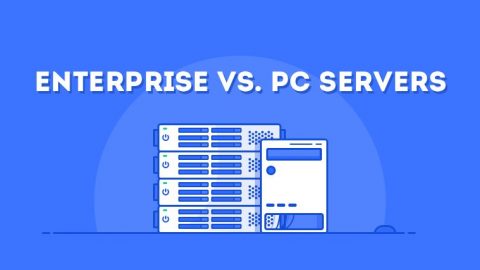What is a virtual private server (VPS)?
VPS stands for “virtual private server.”
A VPS is an isolated, virtual environment which works exactly the same as a dedicated server without the high cost and management overheads of a physical machine.
Essentially, a web host takes a larger server and creates multiple virtual machines using the same hardware.
This makes a VPS the perfect mid-point between shared hosting and dedicated hosting, which makes it a solid choice for a wide range of different applications.
Like a dedicated server, a VPS will allow you to install applications and gain direct access to the underlying operating system at a fraction of the cost of dedicated server hosting. You have just as much control over your virtual private server as you’d have over a physical machine.
Cloud servers are effectively just another type of VPS.
There’s a common misconception that cloud servers don’t count as a VPS, but take a moment to think about it:
Is it virtual? Yes.
Is it private? Yes.
Is it a server? Yes.
So it stands to reason that cloud servers are just another type of VPS.
Why should you use a VPS?
VPS hosting isn’t for everyone, and it tends to work better in some situations than in others. We don’t want to just blindly sell you on the benefits of a VPS, so here a few reasons why you may or may not want to consider VPS hosting.
When you should consider using a VPS:
- When your website exceeds the architectural and resource limits of your shared or reseller hosting.
- When you need to install custom modules or applications that aren’t supported by your shared host.
- When you require root access to the server.
- When you want a virtual dev environment for your software development and testing.
- When you’re processing financial transactions and handling sensitive data.
- When you’re experiencing extreme traffic fluctuations.
When you should NOT consider using a VPS:
- When you’re hosting low traffic websites that aren’t mission critical.
- When you’re a beginner and you just want to learn the basics like FTP, WordPress, and cPanel.
Overall, though, VPS hosting is a versatile choice for a wide range of different situations, which is one of the reasons why it’s so popular.
It offers increased performance and scalability when compared to shared hosting while simultaneously isolating your site from those of other users. It’s also available at a much more affordable price than dedicated hosting. What’s not to love?



